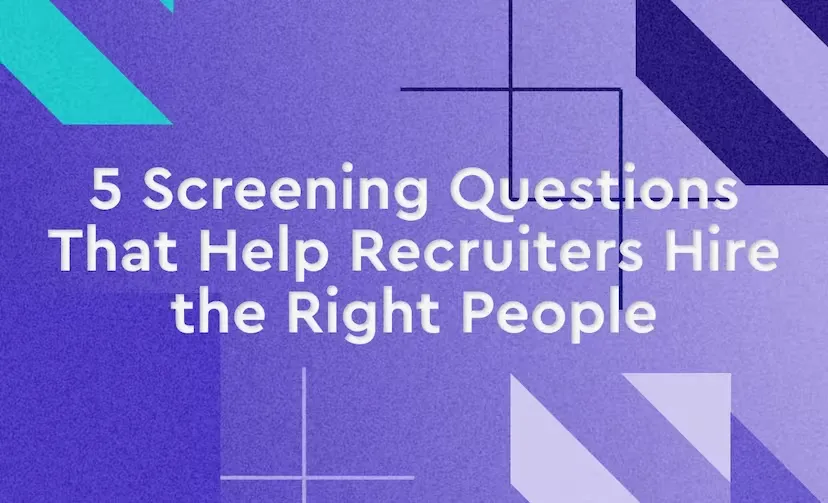Recruiting is a complex process, and as a recruiter, it is important to have a well-defined and thorough hiring process in order to effectively assess and manage candidates.
One key aspect of this process is the initial screening, during which recruiters ask a series of questions to gain insight into a candidate’s skills, experience, and fit for the role.
Candidate experience is an important consideration, as the way in which these questions are asked can impact the overall impression a candidate has of the company.
In this blog post, we’ll discuss the five key questions recruiters should ask candidates, why they are important, and how recruiters can evaluate them during the behavioral interview.
What You Will Find Ahead:
Top 5 Screening Questions Recruiters Should Ask:
- What Are Your Professional Goals?
- What Are Your Strengths?
- How Do You Approach Teamwork and Collaboration?
- Can You Describe Your Previous Work Experiences?
- How Do You Handle Stressful Situations?
What Are Your Professional Goals?
Asking a candidate about their professional goals and how they plan on achieving them helps recruiters gain insight into their ambitions and priorities as well as how their goals align with the job role.
It can also give recruiters a sense of how the candidate might fit into the company’s culture and long-term plans.
Tapping into how well the candidate has thought about their future demonstrates motivation and commitment to their career development.
What Are Your Strengths?
Understanding a candidate’s strength and how they have used them in their previous roles helps recruiters understand their areas of expertise, competency, and how they have successfully applied them in the past.
This can provide recruiters with valuable insight into their capabilities and areas of improvement.
When the candidate has an opportunity to showcase their accomplishments and highlight their unique strengths, it makes it easier for the recruiter to determine whether the candidate is equipped to handle the job role and make a positive contribution to the team.
How Do You Approach Teamwork and Collaboration?
This question helps recruiters gain a better understanding of a candidate’s knowledge of the role requirements and their overall qualifications.
Getting a sense of the candidate’s communication style and ability to work well with others helps put team projects and collaboration into perspective.
If the candidate has a unique skill set and viewpoint, it can be beneficial to incorporate them and be a determining factor why they are the best fit for the job.
Can You Describe Your Previous Work Experiences?
Asking a candidate to explain times when they had to adapt to a new work environment or process quickly gives you insight to how they operate. Gauging their ability to be flexible and adapt to change well.
Especially during fast paced and ambiguous environments, like that of start ups, the candidate must be able to learn and adapt to new situations.
This is a great way to assess problem solving capabilities and how they can utilize them to handle workplace challenges.
Talking about previous work experience helps recruiters understand how the candidates skills and expertise were applied to prior and current positions.
How Do You Handle Stressful Situations?
This question revolves around difficult situations or conflicts at work that the candidate might have had to face up against.
Assessing how candidates respond to stressful circumstances is important in order to determine their ability to handle pressure and remain productive in a fast paced and challenging environment.
This question can also help recruiters evaluate if the candidate is a team player, how they might respond to conflicts in the workplace, and also their emotional intelligence.
How the candidate problem solves is important to how they will approach conflicts in a new position.
Incorporating These Questions Into A Comprehensive Hiring Strategy
The five questions outlined above help recruiters gain valuable insight into a candidate’s qualifications and capabilities.
Asking these questions during the initial screening process is important because it helps recruiters narrow down the pool of candidates and identify the most qualified and suitable individuals for the role.
A very important thing to keep in mind as a recruiter is to ask these questions in a respectful and professional manner, while also being mindful of diversity and inclusion. This means avoiding any cognitive bias or discriminatory language and ensuring that all candidates are treated fairly and equally during the hiring process.
Incorporating these questions into a comprehensive hiring strategy that includes a thorough candidate assessment and management process can help ensure a successful talent acquisition and a positive on-demand hiring experience for both the company and the candidate.
